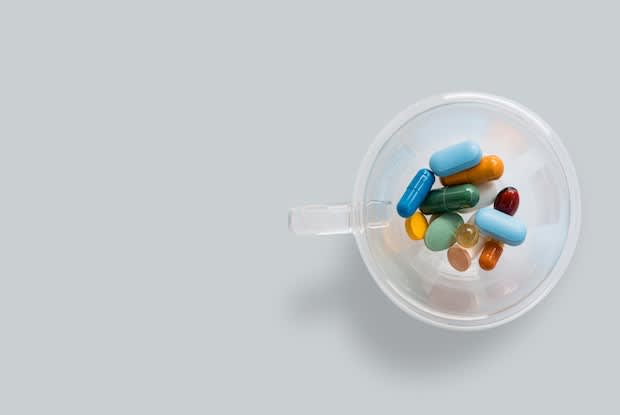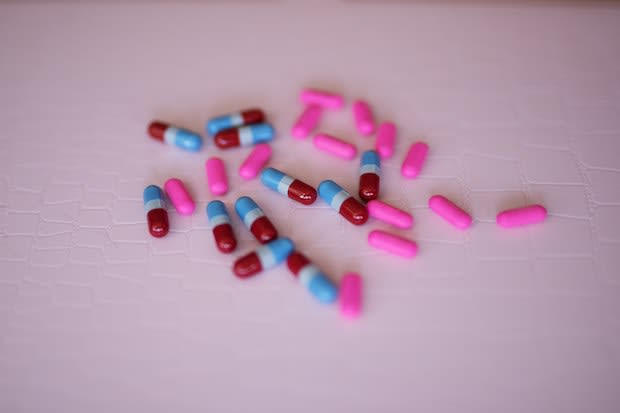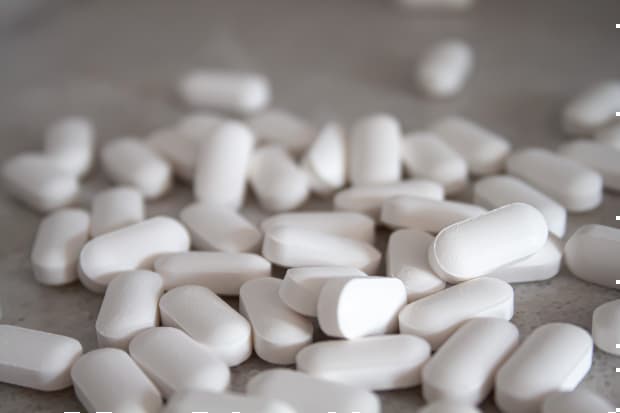Table of Contents
b. Elmiron (pentosan polysulfate sodium)
Risk of Blood Clots
Blood clots can be a terrifying medical event. When you have an open wound, it is necessary for the blood to clot so excessive bleeding does not occur. But if the blood clot is caused by health issues like high blood pressure or high cholesterol, the result can be life-threatening. A blood clot near the brain can lead to a stroke, and a blood clot in the cardiovascular system can lead to a heart attack. Blood clots can occur in the legs and travel upwards to your lungs, causing serious complications. [1]
If your doctor examines your risk factors and deems you are likely to experience a blood clot, you may be prescribed Coumadin (warfarin), Elmiron (pentosan polysulfate sodium), or Eliquis (apixaban). These blood thinners can reduce the risk of a blood clot, but they can also increase the chance of excessive bleeding and unwanted drug interactions. Read on to find out what drugs should not be taken alongside blood thinners.
Coumadin (warfarin) is a powerful drug. It can be lifesaving if you experience a blood clot, but it can also have serious side effects. Treatment with warfarin must be carefully balanced, and steps must be taken to prevent excessive bleeding. It is also crucial to use the correct dosage, eat the right foods, and take the right supplements while on warfarin. So, what kind of drug interactions should you watch out for? More than 120 drugs are known to interact with warfarin, so it is very important to run something by your doctor if you think it might be problematic. The most common ingredients that can interact with warfarin include: Common brand names that contain these ingredients include: When you are taking warfarin, it is important to consume a consistent amount of vitamin K. This is because warfarin works by acting on the vitamin K in your body. Not having enough vitamin K can increase the risk of bleeding. You can increase your vitamin K intake by eating green vegetables, such as broccoli, spinach, and lettuce. If you are taking or planning to take supplements, keep in mind that warfarin can interact with the following: Warfarin can also interact with certain foods in your diet. Common foods such as cranberries, cranberry juice, grapefruit, alcohol, garlic, and black licorice may lead to complications and excessive bleeding, so it is very important to tell your doctor what your diet consists of before starting treatment with warfarin. [2] Elmiron (pentosan polysulfate sodium) is another powerful blood thinner that can dissolve blood clots and potentially save a life. If you react adversely to Elmiron and develop nosebleeds, bleeding gums, blood in your urine or stool, or blood when you cough, call your doctor. Like warfarin, Elmiron may interact with many other drugs, supplements, and foods. The list is long, but Elmiron has been recorded to be affected by the following: This list is not conclusive, so it is essential that your doctor knows all the medications you are taking before starting Elmiron. For Elmiron, the most important drug to avoid taking concurrently is mifepristone. This interaction can cause very serious complications. [4] Eliquis (apixaban) is an effective blood-thinning medication as well. It is primarily used to treat deep vein thrombosis (DVT) and pulmonary embolism. By blocking blood clotting factors, Eliquis may lower the risk of stroke and atrial fibrillation. Eliquis does not interact well with antidepressant medications. Additionally, combining Eliquis with nonsteroidal anti-inflammatory drugs (NSAIDs) may lead to complications. [5] Roughly 300 drugs are known to interact with Eliquis. Below are the most commonly recorded drugs that interact with Eliquis. Some drugs interact with both Elmiron and Eliquis, so repeats may be seen but are included as a precaution. The content in this article is intended for informational purposes only. This website does not provide medical advice. In all circumstances, you should always seek the advice of your physician and/or other qualified health professionals(s) for drug, medical condition, or treatment advice. The content provided on this website is not a substitute for professional medical advice, diagnosis, or treatment.
Drug Interactions
a. Coumadin (warfarin)

b. Elmiron (pentosan polysulfate sodium)

c. Eliquis (apixaban)
